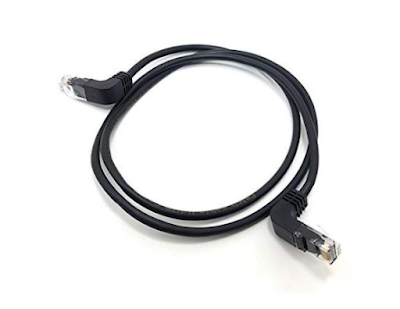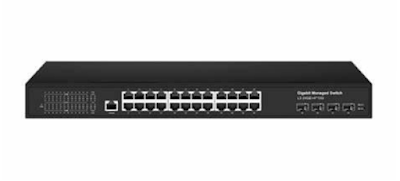The main benefit of an Ethernet extender is that it can increase the distance between two or more devices within a single network. The newest technology can reach a distance of several miles, allowing for faster connection speeds.
WiFi and Ethernet are two major connection types. Both come with good and bad sides. Most of you would probably give an advantage to wireless technology due to its simplicity and ease of installation. More on other benefits read on this source. But even though WiFi has significant advantages, it's not always the best choice. That's where a wired connection hops in.
Simply put, it's a good, old wired connection between router and devices on the same network. Sure, it also comes with certain drawbacks, but compared to WiFi, it's more stable and provides higher speeds. Besides, it's not prone to attacks like the wireless network is. It also needs less power for full efficiency.
Reasons for Ethernet Extension
When you decide to install Ethernet, you usually get a set of cables of a certain length in the package. It usually doesn't exceed 100m, usually enough for home use or some smaller business premises. But the longer the distance, the more risk of a ground loop is present. That's common for copper cables, which are prone to tripping when running through walls and structures.
As the number of devices on a network and the space where you need a wired connection grows, so does the need to physically expand it. You need extenders to cover more workstations. They can extend the distance between connected devices as long as you need. But you can also use them if the current Ethernet network interrupts due to some reason.
The essential reason for extending Ethernet is scalability. Most businesses grow and expand across locations, so they need a stable and seamless connection while maintaining the highest level of data security. Extenders allow you to increase your network's range without requiring additional equipment, allowing you to cover even remote locations.
There are several Ethernet extenders on the market for a home or business use. Each of them has the same purpose, to expand the existing network up to a certain length. They come with various additional features, such as allowing you to control network security, remote controlling, enhanced chassis to withstand extremes, etc.
PoE Devices
Power Over Ethernet (POE) extenders are mostly used for homes and businesses. The name comes from the fact that this type of cable passes electric current along with data. So it allows a single cable to provide both Ethernet and electricity.
These extenders are great for powering distant locations and hard-to-reach areas with no power or WiFi signal. But if your home or office uses multiple computers, these devices can also be a great solution.
Extenders with UTP Cables
As their name said, UTP or Unshielded Twisted Pairs cables have no intertwined protective covering. This type of design allows them to be increasingly flexible and cheaper to manufacture. That's why they are flexible and cheaper than other cable types.
The length that UTP cables can cover is 100 meters (328 ft). But these extenders may lack good signal quality, so they are not the best solution for areas with the proximity of powerlines. Today, they are rarely in use for other things than phone wiring, as there are much better solutions for almost the same price.
Ethernet over Coax
Another type of Ethernet extender uses your current coaxial cables. That makes it a budget-friendly option that can enlarge your Ethernet network up to 3500 ft (1000 m). The newest models of these devices can support speeds up to 10 Mbps. They are an excellent solution for video transmission, so you can use them when installing video surveillance in a yard or around your commercial premises. These extenders are a scalable solution when you pair them with coaxial switchers.
More on the benefits of Ethernet over coax see below:
https://howtodiscuss.com/t/ethernet-over-coax/124769
Wireless Extenders
Wireless Ethernet extenders are an excellent option to extend your network over long distances. These devices are small and pluggable and have a wide range of ports. The advantage of this type of extension is that it can be used for multiple devices and is not limited to just one computer. Also, you can connect these devices without any cables.
You have two options with WiFi extenders for Ethernet. You can connect a cable to this device or match it directly with the router via that same cable. The second option is better as it will provide a more stable and stronger wireless connection. But not all WiFi extenders are intended for these purposes. So when buying, look for those that have Ethernet ports.
Fiber Optics
Fiber-optic technology offers the highest-speed connections and is immune to electromagnetic interference. That's the best solution you can choose, but also the costliest. Still, all the benefits this technology brings are worth the price, especially for commercial purposes.
Cables made of these fibers provide immunity from spikes, ground loops, and surges. So you can keep a high data rate and signal quality with no external interruptions. Standard Ethernet extenders use copper wiring instead of fiber, costing much less than any fiber optics cables. But their transmission is several times slower than in fiber optic cables.
Industrial Extenders
Fiber optics technology for extending commercial-grade Ethernet is great, but it's a high cost for some businesses. Industrial Ethernet extenders can be an excellent and more budget-friendly option. They are designed for point-to-point runs.
You can use industrial-grade extenders from Enable-IT in residential environments as well. They are classified according to the data rate and length they cover. For example, some devices have a range of up to 8 kilometers. But they achieve a better data rate (up to 100Mbps) over shorter distances.
The different types of Ethernet extenders come with different configurations and prices. Depending on your needs, you can find the best one for your needs. So shop around and do your best to get the best value for your money.



No comments:
Post a Comment
Talk to me!